Verus Kayaks Environmental Impact Assessment
May 15th, 2020
My name is George Fiske, and I’m the Creative Director here at Verus Kayaks. I’d like to share with you the following paragraphs to discuss the company we’re working to build and our relationship to the environment. The unavoidable truth of the matter is that to manufacture kayaks is to produce highly specialized plastics. We are categorical polluters by the very nature of our business, but we have a plan! This year we’ve partnered with American Forests to plant 1,000 trees in Western Arkansas to offset our emissions and help restore the Shortleaf Pine Stands of the Ouachita National Forest. When you buy your boat from Verus, we’ll be planting 10 trees in your name. I’d like to take the time below to explore the tensions we feel in manufacturing our boats and discuss how we decided on tree planting as our solution.
To begin, this article is not a condemnation of our sport. I think kayaking is important. It’s simple, wholesome fun in a world dominated by screens and digital facades. In my experience, real laughter, and real fear are hard to come by elsewhere. For someone to paddle means they’re directly engaged with the wild forces of our planet’s rivers. On the water, that’s all that matters. Those who know, know. There are few boaters who won’t share with you a story of the effect water has had on them; from helping to manage anxiety, finding personal empowerment, or even experiencing a connection to the mystical. I sincerely believe that water heals, rivers teach, and boating is medium for these lessons.
On the other hand, as a lover of the environment, I’ve had to face some difficult realities. While a plastic kayak has been the best way I’ve found to engage with the natural world, the boats and materials we rely on come with a high environmental cost. In my mind, the word ‘plastic’ has a dirty hue. It’s difficult for me to square my concern for the state of the Earth with my love of petroleum-based HDPE kayaks, rotationally molded at high heat, and shipped across the world all for the sake of my recreation. To say it bluntly, it haunts me.
So here I am. A 22-year-old entrepreneur, compelled by the transcendence of paddling, and concerned for the impact producing our crafts will inevitably cause. The wide-eyed idealist in me might say not to make the kayaks at all. The businessman in my left brain would wonder why I’m so concerned with a couple tonnes of CO2 from production. So what should I do? Turn my back on these concerns and not talk about it like everyone else? Abandon my pursuit of making kayaks? Live off grid and start working on kelp plastics?
No, personally those paths seem either unacceptable or impractical. The rivers simply have too much to offer, and the communities united by the paddle need boats to explore, play and rejoice in. Now I find myself in the unique position of being able to do something about it. Running a company gives us the opportunity to take action, refuse the status quo, and affect change for a future we can believe in. Rather than stringing together clichés, let’s take a minute to run through the numbers, and then I’ll fill you in on our plan.
Data Summary:
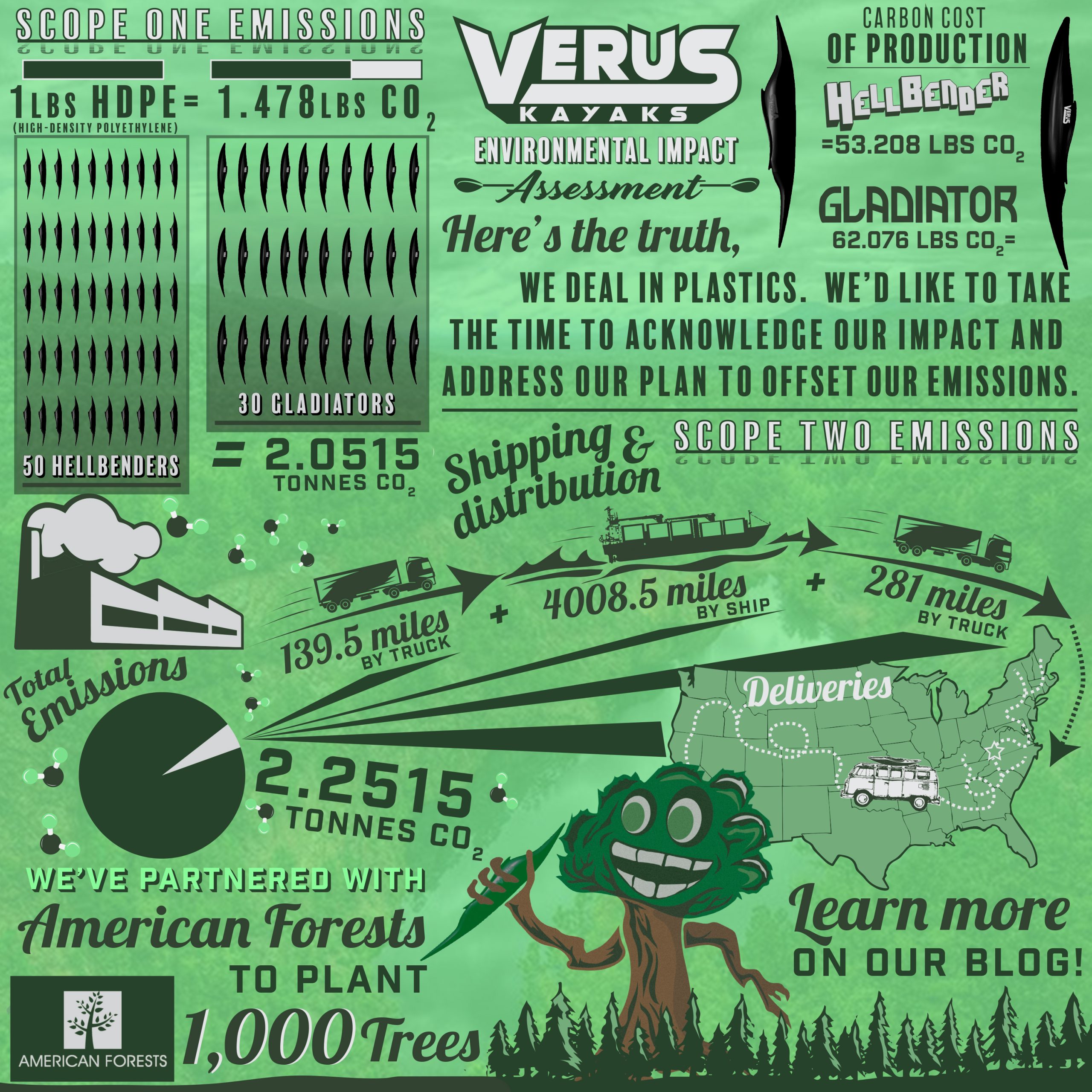
Working with a small team of students from Bates College, we were able to assess the carbon cost of running our business. If you’re inclined towards data, you can take a look at our number crunching in the paragraphs and charts below. The short version is that through each batch of production and shipping, we’ll produce approximately 2.25 tonnes of CO2. Keep that number in the back of your head if you skip down to our solutions below.
In this assessment, we focused on the carbon impact of production and shipping for our boats. Known as Scope 1 emissions, we’ve accounted for our manufacturing of HDPE plastic for each kayak. Per pound of HDPE molded, 1.478 pounds of CO2 are produced. For example, a Gladiator 2.0 weighing 42 pounds would produce 62.076 pounds of CO2 through production. We’ve decided on manufacturing 80 boats in this order, at a ratio of 50 Hellbenders and 30 Gladiators, which produces 2.0515 tonnes of CO2. This is the main source of our emissions, and in choosing to pursue this business, an unavoidable cost of making a product we believe in.
That brings us to Scope 2 emissions: shipping and distribution. Once the boats are manufactured, they still need to find their way to rivers across the world. Our manufacturing partner is based in YongKang, China so their journey is a long one. First, a truck transports them to Ningbo, where they’re loaded onto a freighter and shipped to Norfolk, VA. Upon arrival they’re trucked again to our barn on Bent Mountain, VA. From here, we’ll be personally driving deliveries across the US and Canada.
These kayaks will be well traveled, but what does that mean? Luckily, the first three shipments are in bulk which makes things a bit more straightforward. To simplify, let’s combine the truck shipments and assume the vehicles get the same gas mileage. It’s 139.5 miles from Yong Kang to Ningbo and 281 miles from Norfolk to Bent Mountain. In total, that is 420.5 miles of shipping via truck. From Ningbo to Norfolk, these boats will travel 4008.5 miles via freight ship across the Pacific, and to the East coast of the USA. Whew, that’s a lot of travel and a whole lot of numbers. Bear with me here, we’re getting to the good part.
From the production of all of our kayaks, we will emit a total of 2.0515 tonnes of CO2. The truck shipments tack on another .06 tonnes, and the cargo ship will add another .04 tonnes of CO2 to this process. Tallied up that brings us 2.1515 tonnes of CO2 thus far. It’s difficult to estimate the addition of deliveries, but we’re working on coordinating regional drop offs to improve efficiency. For now, we’ve included another .1 tonnes to our impact assessment for this grey area. We’ll be tracking our mileage through the summer and bringing you all a revised report when the data becomes available!
Our Solutions.
So lets review. I’m starting a kayak company with two of my best friends and we want to address the impact of manufacturing our boats. We’re compelled to explore the world through rivers, and plastic boats are an unavoidable part of our pursuits. So what can we do?
Y’all might have heard of a carbon offset before, but let me briefly elaborate. American corporations have developed an industry of offsetting emissions through investment in carbon saving initiatives such as methane recapture, or solar installations. At their best, offsets allow a company to address their emissions and provide funding for ‘green’ initiatives which might not otherwise receive backing. At their worst, offsets can be a hollow trick; insincere cause marketing targeted at your good sense as a consumer. For a cheap 8 dollars, companies can pay for an offset credit allegedly good for one tonne of carbon emissions. Following the money, many offset organizations seem to spend far more on fundraising and personal payroll than they do on their proposed projects. It’s a business under the guise of a good cause. That doesn’t sit well with me.
The reason I bring all this up is to say that I take this project seriously. While we choose to make kayaks, we now have the choice to invest in the ‘right’ sort of offsets. What we’re looking for at Verus is a direct impact we can make on our local environments, and an organizational partner with a strong track record of action. We want to give you the assurance that our investment won’t end up in the limbo of a project that doesn’t come to fruition or worse as a cheap trick disguised as an offset credit.
After significant research, we’ve decided to partner with American Forests. They’re one of the longest standing forest management organizations in the country and a leader in sustainable forestry practice. For every boat we sell, we’ll plant 10 trees towards their Shortleaf Pine restoration project in the Ouachita National Forest of Western Arkansas. In 2020, their goal is to plant 215,000 Shortleaf Pine seedlings and we’re proud to contribute!
So, what makes our partnership with American Forests different from the ‘cheap’ offsets I described above? Tree planting is a high impact way to reduce atmospheric carbon using natural methods. A typical pine can sequester up to a tonne of CO2 through the course of its lifetime. Emissions aside, pine forests offer crucial habitat for a myriad of vulnerable wildlife. We want you to know there’s no ambiguity here. You can visit the Ouachita National Forest and see this project in action through the summer. We have a guarantee of where, when and how these trees will be planted. When you purchase your boat from Verus Kayaks, we’ll be planting 10 trees in your name, then an extra 200 at the end of the year for good measure.
We’re not perfect, but this is somewhere to start. With 1,000 trees planted this year, we’ll begin to sequester the carbon released in production and shipping of our boats. It’s been difficult for me to accept that making something I love comes at the price of manufacturing pollution. I really do believe in what we’re doing here. I believe that connecting to a river through a kayak is one of the most sublime relationships one can have with the natural world. As we continue to grow our company, we’ll be able to sponsor more significant action, plant more trees, and continue to look for more ways to reduce our footprint on this Earth. So yes, we manufacture plastics. We manufacture plastics for a product we believe in. We’re committed to making boats for people to have radical experiences in nature and we’re committed to doing justice for the environments which allow us to have these experiences. I’m proud to be able to make this stance today, and I look forward to the potential we have in the future.
I appreciate you taking the time to hear me out. If you’ve read down this far I’d love to hear what you have to say! You can drop a comment down below the blog, or you’re always welcome to contact any member of the team if you’ve got any questions.
Much love,
George Fiske
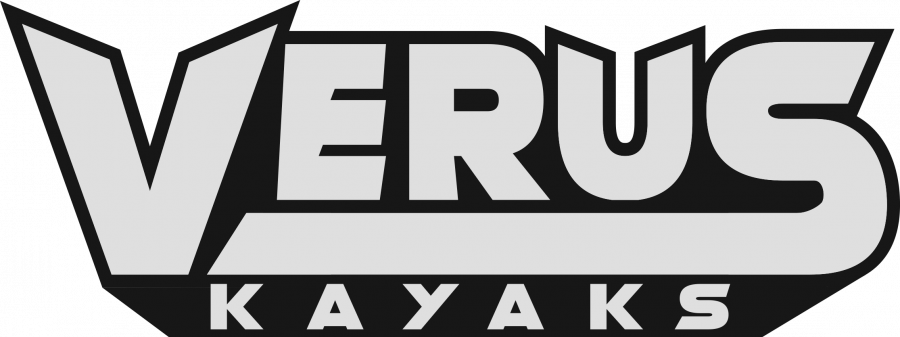
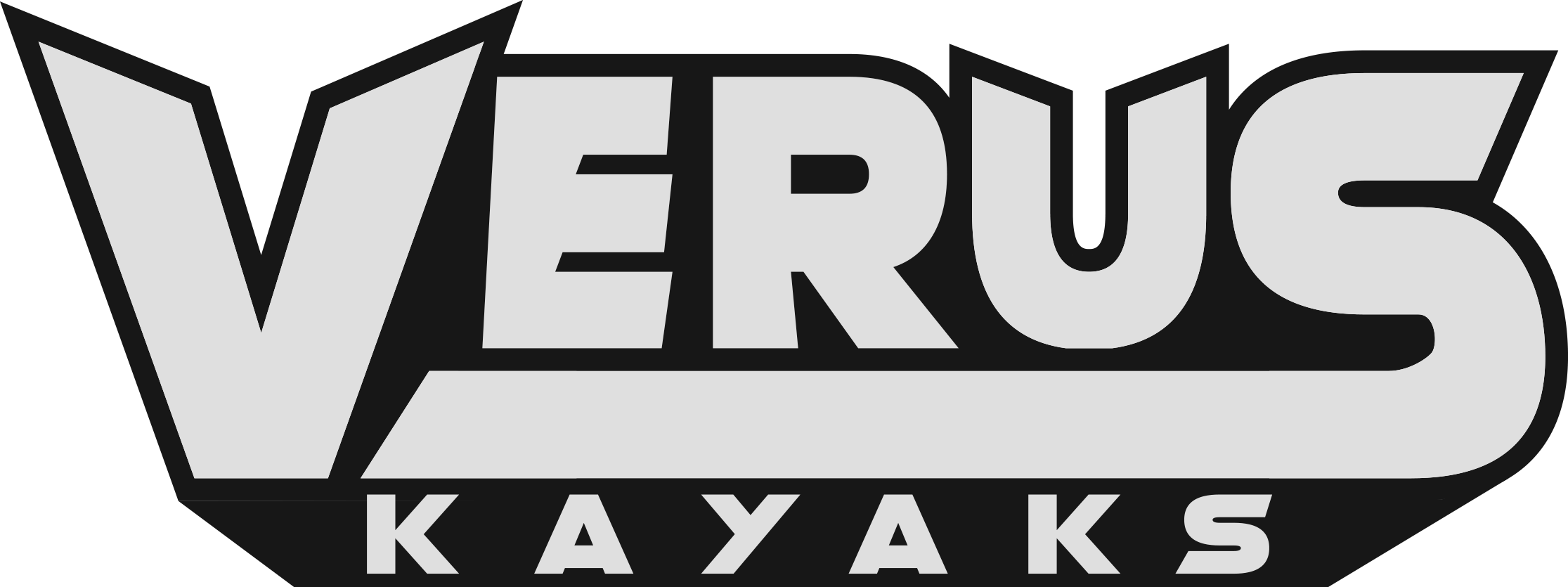

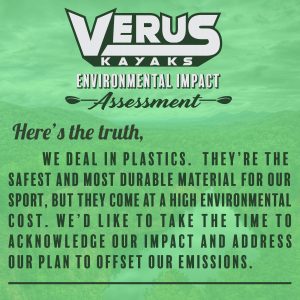
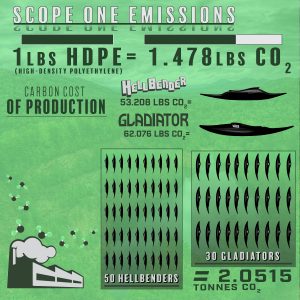
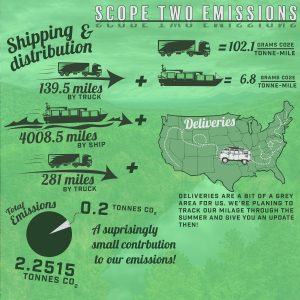
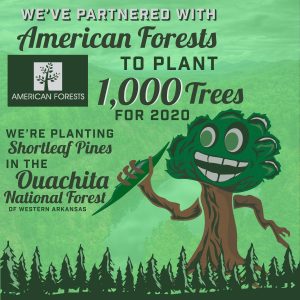
![[Project: Made In America]](https://veruskayaks.com/wp-content/uploads/bfi_thumb/dummy-transparent-pp92e78ildkgku5urfcckhk3hoodiizz2p55ttbz88.png)